The District of Columbia is a vibrant area that houses the seat of the United States government. The historical significance and current dominance of the District as the globally vital power center can cause us to overlook the educational opportunities located there. The District is home to major colleges and universities. These schools have an ideal position for those interested in policy and government, and they are among the top colleges and universities in the United States.
The District of Columbia educational institutions include old and established schools like George Washington University and the American University. The list also has state-sponsored schools like the University of the District of Columbia, historically Black schools like Howard University, faith-based universities like the National Catholic University, and prestigious professional schools like the Georgetown University School of Business. Then there are smaller schools like Trinity College, and the specialized Gallaudet College which provides education to persons with special abilities.
As with other parts of the nation, the leading District of Columbia schools provide online as well as on-campus learning. Distance learning can open the benefits of the district location to students from every part of the country that cannot or prefer not to come to Washington, DC to attend on-campus classes.
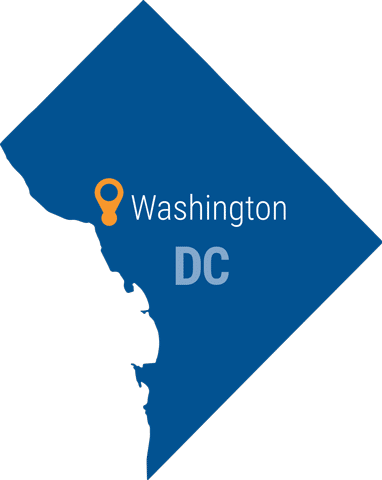
How Much Can You Make by Earning a Degree in the District of Columbia?
Americans earn more when they get more education. The Bureau of Labor Statistics (BLS) offers clear information from real-world surveys that show that college degrees add to average and median annual incomes at every level. According to the BLS, income and education move in a direct relationship. Beginning at the level of an associate degree, incomes rise with each level of educational attainment. For example, with a GED or high school diploma, workers can expect to earn about $652 per week. After obtaining an associate level degree, the average weekly pay rises to about $785. The difference is more than $6,000 per year.
A bachelor’s degree increases annual income by about $17,500 per year over a high school level worker. A bachelor’s degree can add $1 million in lifetime earnings over those with a high school diploma. The difference in incomes continues with post-graduate education. Master’s degree holders enjoy higher average incomes than bachelor degree level graduates. Some specialized/professional degrees open high-income potentials such as an MBA or a Juris Doctor degree. The highest income group are medical professionals for whom the long and difficult years of education, training, and supervised learning pay off in high annual incomes.
Education Level & National Average Median Compensation
| NO FORMAL EDUCATION | HIGH SCHOOL DIPLOMA | ASSOCIATE DEGREE | BACHELOR’S DEGREE | MASTER’S DEGREE | DOCTORAL DEGREE |
|---|---|---|---|---|---|
| $30,784* | $38,792* | $46,124* | $64,896* | $77,844* | $96,772* |
Featured Online Programs
Most Popular Degrees and Careers in District of Columbia
The District of Columbia is a growth area with a solid economic foundation rooted in the federal government, federal agencies, the Congress, and the government policy-making activity. The District has the largest concentration of federal employees and, combined with adjacent areas of Maryland and Northern Virginia, it forms one of the strongest local economies in the United States.
Top Business Careers and Salaries
- Accounting
- Business
- Business Administrator
- Business Manager
- Economist
- Entrepreneur
- Financial Analyst
- Hospitality Manager
- Human Resources Manager
- International Business Manager
- Marketing Manager
- Operations Manager
- Organizational Leader
- Project Manager
- Supply Chain Manager
| CAREER NAME | CURRENTLY EMPLOYED | AVERAGE ANNUAL SALARY |
|---|---|---|
| Biological Scientists | 510 | $57,300 |
| Budget Analysts | 1,930 | $62,200 |
| Buyers and Purchasing Agents | 2,540 | $62,400 |
| Chemists | 260 | $56,700 |
| Epidemiologists | 30 | $64,700 |
| FBI Agent | - | $78,000 |
| Financial Analysts | 7,360 | $61,400 |
| Geoscientists | 29,200 | $81,300 |
| Human Resources Specialists | 7,500 | $51,500 |
| Physicists | 750 | $95,700 |
| Public Relations Managers | 5,990 | $69,600 |
| Social /Community Service Mgrs. | 700 | $50,800 |
Top Computers Careers and Salaries
- Computer Engineer
- Computer Information Technologist
- Computer Programmer
- Computer Scientist
- Cybersecurity
- Database Administrator
- Database Management
- Software Engineer
- Web Development
Top Education Careers and Salaries
- Early Childhood Administrator
- Early Childhood Education Teacher
- General Education Teacher
- Secondary School Teacher
| CAREER NAME | CURRENTLY EMPLOYED | AVERAGE ANNUAL WAGE |
|---|---|---|
| English Language and Lit., Postsecondary | 370 | $47,000 |
| Political Science, Postsecondary | 1,010 | $47,500 |
Top Healthcare Careers and Salaries
- Gerontology Nurse or Physician
- Healthcare administrator
- Healthcare Manager
- Nurse
| CAREER NAME | CURRENTLY EMPLOYED | AVERAGE ANNUAL SALARY |
|---|---|---|
| Dentists | 110,730 | $136,300 |
| Dieticians | 67,670 | $54,300 |
| Pharmacists | 311,200 | $115,200 |
| Physician assistants | 120,090 | $97,800 |
| Podiatrists | 9,770 | $130,600 |
Top Legal Careers and Salaries
- Corrections and Case Managers
- Criminal Justice Professional
- Cybersecurity
- Forensic Science Technician
- Law Enforcement
Top Occupations With the Highest Forecasted Growth Rate
| Occupational | 2026 Employmen | Growth Percentage | Salary |
|---|---|---|---|
| Information Security Analysts | 1,198 | 34.9% | $119,560 |
| Software Developers, Applications | 2,430 | 34.2% | $112,000 |
| Physician Assistants | 559 | 31.2% | $103,600 |
| Nurse Practitioner | 727 | 30.3% | $104,450 |
| Athletic Trainers | 94 | 28.8% | $58,500 |
| Mathematicians | 117 | 28.6% | $120,000 |
| Statisticians | 2,198 | 28.3% | $104,000 |
| Nursing Teachers, Postsecondary | 311 | 27.5% | $70,110 |
Top 5 Best Bachelor's Programs in District of Columbia
University of the Potomac-Washington DC
Score: 77.64
- Undergraduate Tuition
- In-State: $6,660
- Out-of-State:$6,660
- Net Price: $18,780
- Acceptance Rate: 100%
- Retention Rate: 75%
- Graduation Rate: 50%
- Total Enrollment: 593
- Undergrad Students: 266
- Graduate Students: 327
- Grads Salary: $120,000
- Student-to-faculty: 10:1
Georgetown University
Score: 76.68
- Undergraduate Tuition
- In-State: $65,081
- Out-of-State:$65,081
- Net Price: $37,967
- Acceptance Rate: 13%
- Retention Rate: 97%
- Graduation Rate: 94%
- Total Enrollment: 20,392
- Undergrad Students: 7,968
- Graduate Students: 12,424
- Grads Salary: $87,000
- Student-to-faculty: 11:1
Howard University
Score: 69.34
- Undergraduate Tuition
- In-State: $33,344
- Out-of-State:$33,344
- Net Price: $30,028
- Acceptance Rate: 35%
- Retention Rate: 90%
- Graduation Rate: 69%
- Total Enrollment: 13,416
- Undergrad Students: 10,190
- Graduate Students: 3,226
- Grads Salary: $80,000
- Student-to-faculty: 11:1
George Washington University
Score: 67.73
- Undergraduate Tuition
- In-State: $64,990
- Out-of-State:$64,990
- Net Price: $45,466
- Acceptance Rate: 44%
- Retention Rate: 92%
- Graduation Rate: 85%
- Total Enrollment: 25,568
- Undergrad Students: 11,387
- Graduate Students: 14,181
- Grads Salary: $85,000
- Student-to-faculty: 12:1
Catholic University of America
Score: 66.38
- Undergraduate Tuition
- In-State: $55,834
- Out-of-State:$55,834
- Net Price: $35,008
- Acceptance Rate: 84%
- Retention Rate: 83%
- Graduation Rate: 81%
- Total Enrollment: 5,171
- Undergrad Students: 3,139
- Graduate Students: 2,032
- Grads Salary: $79,000
- Student-to-faculty: 11:1
American University
Score: 64.8
- Undergraduate Tuition
- In-State: $56,543
- Out-of-State:$56,543
- Net Price: $40,189
- Acceptance Rate: 47%
- Retention Rate: 86%
- Graduation Rate: 78%
- Total Enrollment: 13,019
- Undergrad Students: 7,817
- Graduate Students: 5,202
- Grads Salary: $76,000
- Student-to-faculty: 10:1
Trinity Washington University
Score: 64.29
- Undergraduate Tuition
- In-State: $26,110
- Out-of-State:$26,110
- Net Price: $12,704
- Acceptance Rate: 99%
- Retention Rate: 71%
- Graduation Rate: 44%
- Total Enrollment: 1,865
- Undergrad Students: 1,604
- Graduate Students: 261
- Grads Salary: $77,000
- Student-to-faculty: 9:1
Gallaudet University
Score: 61.28
- Undergraduate Tuition
- In-State: $18,382
- Out-of-State:$18,382
- Net Price: $15,025
- Acceptance Rate: 61%
- Retention Rate: 77%
- Graduation Rate: 47%
- Total Enrollment: 1,364
- Undergrad Students: 919
- Graduate Students: 445
- Grads Salary: $59,000
- Student-to-faculty: 6:1
University of the District of Columbia
Score: 56.1
- Undergraduate Tuition
- In-State: $6,152
- Out-of-State:$13,004
- Net Price: $14,287
- Acceptance Rate: 100%
- Retention Rate: 67%
- Graduation Rate: 26%
- Total Enrollment: 3,855
- Undergrad Students: 3,297
- Graduate Students: 558
- Grads Salary: $69,000
- Student-to-faculty: 6:1
Strayer University-District of Columbia
Score: 8.19
- Undergraduate Tuition
- In-State: $13,920
- Out-of-State:$13,920
- Net Price: N/A
- Acceptance Rate: 100%
- Retention Rate: 33%
- Graduation Rate: 18%
- Total Enrollment: 353
- Undergrad Students: 310
- Graduate Students: 43
- Grads Salary: N/A
- Student-to-faculty: 39:1
Top 10 Best Master's Programs in District of Columbia
University of the Potomac-Washington DC
Score: 77.64
- Graduate Tuition
- In-State: $5,400
- Out-of-State:$5,400
- Net Price: $18,780
- Acceptance Rate: 100%
- Retention Rate: 75%
- Graduation Rate: 50%
- Total Enrollment: 593
- Undergrad Students: 266
- Graduate Students: 327
- Grads Salary: $120,000
- Student-to-faculty: 10:1
Georgetown University
Score: 76.68
- Graduate Tuition
- In-State: $58,848
- Out-of-State:$58,848
- Net Price: $37,967
- Acceptance Rate: 13%
- Retention Rate: 97%
- Graduation Rate: 94%
- Total Enrollment: 20,392
- Undergrad Students: 7,968
- Graduate Students: 12,424
- Grads Salary: $87,000
- Student-to-faculty: 11:1
Howard University
Score: 69.34
- Graduate Tuition
- In-State: $37,334
- Out-of-State:$37,334
- Net Price: $30,028
- Acceptance Rate: 35%
- Retention Rate: 90%
- Graduation Rate: 69%
- Total Enrollment: 13,416
- Undergrad Students: 10,190
- Graduate Students: 3,226
- Grads Salary: $80,000
- Student-to-faculty: 11:1
George Washington University
Score: 67.73
- Graduate Tuition
- In-State: $35,100
- Out-of-State:$35,100
- Net Price: $45,466
- Acceptance Rate: 44%
- Retention Rate: 92%
- Graduation Rate: 85%
- Total Enrollment: 25,568
- Undergrad Students: 11,387
- Graduate Students: 14,181
- Grads Salary: $85,000
- Student-to-faculty: 12:1
Catholic University of America
Score: 66.38
- Graduate Tuition
- In-State: $52,190
- Out-of-State:$52,190
- Net Price: $35,008
- Acceptance Rate: 84%
- Retention Rate: 83%
- Graduation Rate: 81%
- Total Enrollment: 5,171
- Undergrad Students: 3,139
- Graduate Students: 2,032
- Grads Salary: $79,000
- Student-to-faculty: 11:1
American University
Score: 64.8
- Graduate Tuition
- In-State: $32,224
- Out-of-State:$32,224
- Net Price: $40,189
- Acceptance Rate: 47%
- Retention Rate: 86%
- Graduation Rate: 78%
- Total Enrollment: 13,019
- Undergrad Students: 7,817
- Graduate Students: 5,202
- Grads Salary: $76,000
- Student-to-faculty: 10:1
Trinity Washington University
Score: 64.29
- Graduate Tuition
- In-State: $15,390
- Out-of-State:$15,390
- Net Price: $12,704
- Acceptance Rate: 99%
- Retention Rate: 71%
- Graduation Rate: 44%
- Total Enrollment: 1,865
- Undergrad Students: 1,604
- Graduate Students: 261
- Grads Salary: $77,000
- Student-to-faculty: 9:1
Gallaudet University
Score: 61.28
- Graduate Tuition
- In-State: $20,144
- Out-of-State:$20,144
- Net Price: $15,025
- Acceptance Rate: 61%
- Retention Rate: 77%
- Graduation Rate: 47%
- Total Enrollment: 1,364
- Undergrad Students: 919
- Graduate Students: 445
- Grads Salary: $59,000
- Student-to-faculty: 6:1
University of the District of Columbia
Score: 56.1
- Graduate Tuition
- In-State: $9,234
- Out-of-State:$17,748
- Net Price: $14,287
- Acceptance Rate: 100%
- Retention Rate: 67%
- Graduation Rate: 26%
- Total Enrollment: 3,855
- Undergrad Students: 3,297
- Graduate Students: 558
- Grads Salary: $69,000
- Student-to-faculty: 6:1
Strayer University-District of Columbia
Score: 8.19
- Graduate Tuition
- In-State: $14,940
- Out-of-State:$14,940
- Net Price: N/A
- Acceptance Rate: 100%
- Retention Rate: 33%
- Graduation Rate: 18%
- Total Enrollment: 353
- Undergrad Students: 310
- Graduate Students: 43
- Grads Salary: N/A
- Student-to-faculty: 39:1
Cost of District of Columbia College Education & Salaries
Many of the leading schools in the District are private schools that do not offer in-state discounts to incoming students. Georgetown University, George Washington, Catholic University, and American University are among the private schools in the District. Howard University is the HBCU institution and, as a land grant college, it provides in-state rates. The University of the District of Columbia also offers in-state rates.
Search Programs Offering District of Columbia Majors
Tuition Cost Analysis - In-state vs. National
Average Tuition & Fees at 4 Year Public Schools
In-State Tuition - $5,888
National Average – $9,580
Out-of-State – $12,416
National Average – $27,437
Percentage of Students Receiving Financial Aid
The District of Columbia ranked number one in the average amount of financial aid per recipient. The total aid to the District was $353.1 Million, and it was distributed among 21,400 recipients. The net Average was $16,500 per recipient. The 21,400 recipients represented a success rate of 62%. Nearly two of three applicants received funds in the District.
| Financial Aid | District of Columbia | Nationally |
|---|---|---|
| Received Federal Grants | 34% | 37.7% |
| Average $ per Recipient | $16,500 | $10,927 |
* Institutional aid represents grant and scholarship funds directly awarded by a postsecondary institution.
* Financial aid data represents 4-year public and private nonprofit schools only.
Best Scholarships for District of Columbia
Scholarships and grants have the virtue of providing needed support for students pursuing a college education without the need for repayment. To the extent that students use grants and scholarships, they can avoid the debt burden that comes with student loans. Scholarships often have specific requirements and narrow eligibility. These make excellent targets for those who are eligible. Some programs are broad and have large amounts of annual awards. Students should take every opportunity to apply for scholarships and grants.
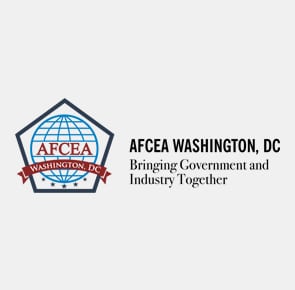
AFCEA
AFCEA Washington, DC Chapter Scholarship
https://dc.afceachapters.org
Amount: $12,000
Deadline: May 1
The Armed Forces Communications and Electronics Association focuses on Department of Defense, intelligence agencies, national security, and military health matters. The AFCEA funds scholarships each year for residents of the Metropolitan Council of Governments area. Eligible students must be second-year community college students or high school seniors, and they must be residents of the designated counties and the District of Columbia. The computer and information technology areas of study include computer science, mathematics, chemistry, and cybersecurity. Eligible categories include STEM fields and artificial intelligence.
MGS
Meg Graham Scholarship - Celebrating Service and Leadership
https://www.jlw.org/students/
Amount: $10,000
Deadline: Application dates – to be Announced
The Junior League of Washington, DC offers a scholarship to reward outstanding students that contribute to the community by volunteer service. The award honors the late Meg Graham who was a longtime member of the DC Junior league and past President of the Association of Junior Leagues International. Students may be eligible that attend public or private schools and reside in the District. Eligible students must intend to enroll in an accredited DC or other four-year school, college, or university. Students must have and maintain a GPA of 2.75 or higher.
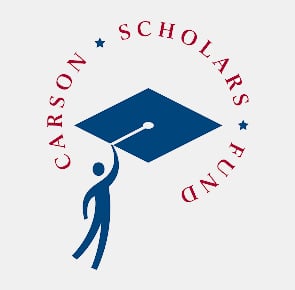
CSP
Carson Scholars Program
https://carsonscholars.org/scholarships/prospective-scholars/
Amount: $1,000
Deadline: January 9
The scholarship rewards students from grades 4 through 11. The selection process includes nomination and recommendation by local participating schools. The program awards scholars with high academic achievement and demonstrated dedication to community service. Eligible students can attend school anywhere in the United States. Students cannot apply directly, but they can involve their schools to get a request for participation and thus make every student eligible for the competition.
Winning students can re-apply for subsequent years to achieve additional awards of scholarship funds. The program limits each school to one selected student. The scholarship program is part of a broader literacy effort. The Carson Foundation is a development by Dr. Ben Carson and others to improve access to education based on merit.
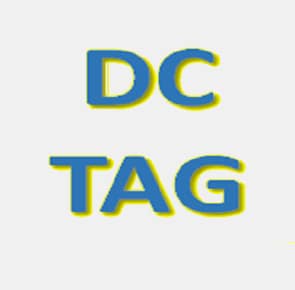
DCTAG
DC Tuition Assistance Grant
https://osse.dc.gov/service/dc-tuition-assistance-grant-dctag
Amount: up to $10,000
Deadline: July 1
The DCTAG program provides tuition assistance for DC residents whether they attend college inside or outside of the District. The aid program works with participating schools across the US. Eligible applicants include US citizens and eligible non-citizen statuses. Students may attend any eligible public or private college or university. The grant applies to any participating college including out-of-state public schools, private schools and Historically Black Colleges and Universities. Students must enroll to pursue their first bachelor’s degree. Students may attend full- or part-time but can only be eligible for up to six years of attendance at four-year institutions and four years of attendance at two-year institutions.
PSOS
Presbyterian Student Opportunity Scholarship
https://www.presbyterianmission.org/ministries/theology-formation-and-evangelism/financialaid/undergraduate-opportunities/
Amount: $2,000
Deadline: May 15
This faith-based scholarship fund seeks to promote Christian ethics and opportunity among under-represented groups. With up to 80 awards, the Presbyterian Student Opportunity Scholarship can assist a wide range of students seeking a first college-level degree. The aid is need-based and students must also participate in an active college ministry or other types of spiritual activities while enrolled. The program encourages applications from racial and ethnic students. Eligible students will be a full-time sophomore, junior, or senior at an accredited four-year college or university. Students must demonstrate financial need, and they must have and maintain a 2.5 GPA or higher level.
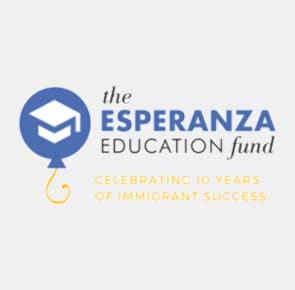
TEEFS
The Esperanza Education Fund Scholarship
http://www.esperanzafund.org/
Amount: $5,000 to $20,000
Deadline: April 01
The Esperanza Education Fund Scholarship offers tuition and expenses, mentoring, and support for immigrant students without regard to immigration status, national origin, or ethnicity. Applicants must be graduating seniors attending high school in D.C., Maryland, or Virginia. The student must be engaged in enrollment full-time at an accredited public college or university.
The Esperanza Foundation is an activist community that places value on human aspirations. The fund pays tuition and fees and other expenses connected to college attendance. Eligibility depends initially on the question of immigrant status. This program asks that the applicant must have been born outside the U.S. or have two parents born outside the US.
TRFS
The Roothbert Fund Scholarship
https://www.roothbertfund.org/scholarships
Amount: $2,000 -$3,000
Deadline: Varies
The New York City-based Roothbert fund offers scholarships and grants to persons with severe financial needs that wish to further their education. Recipients may use the scholarship funds for tuition and expenses at any accredited college anywhere in the US. Applicants that successfully complete a year of education may apply for further funding so long as they remain engaged in the pursuit of their degree. DC is one of the eligible territories for applicants to request and receive funds. Eligibility does not depend on race, gender, age, or religious affiliation. The fund seeks to promote benefits for persons with spiritual motivation and values.
Search All Programs

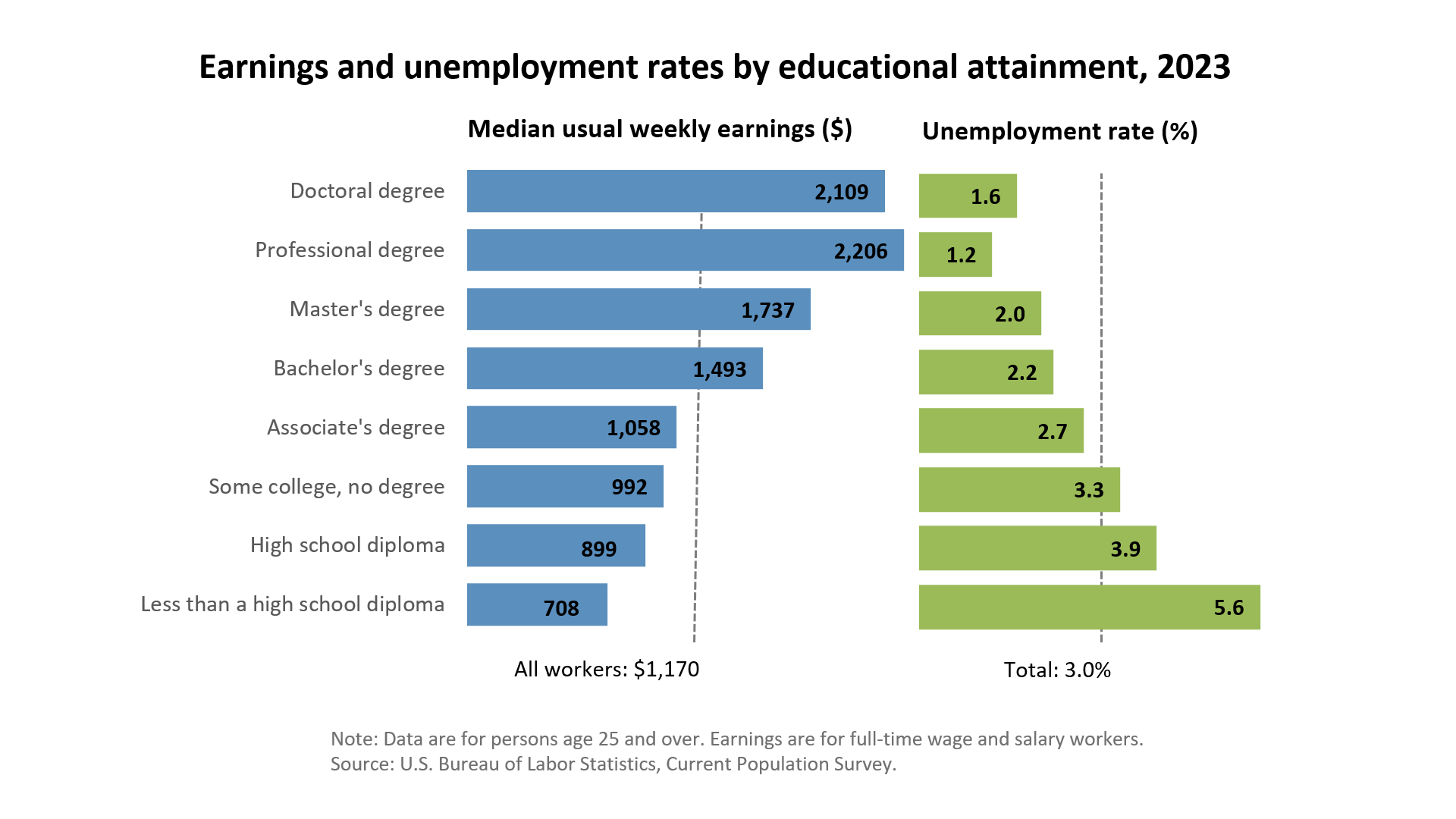
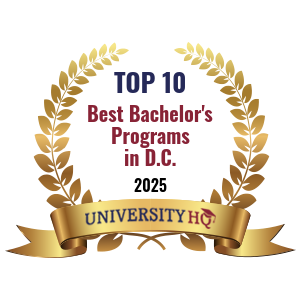










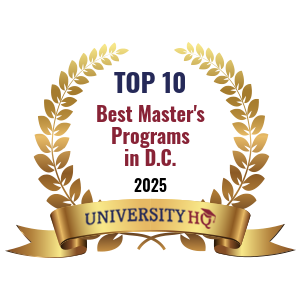
Top Social Services History Careers and Salaries